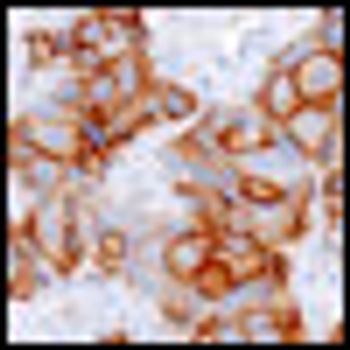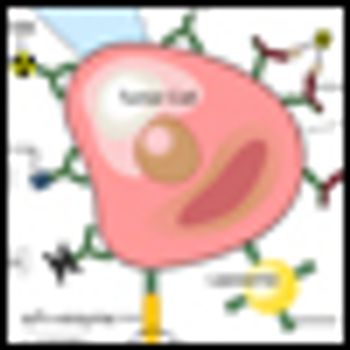
This review will examine agents with potential activity in the palliation and treatment of skeletal metastases of prostate cancer, and will weigh the clinical-outcomes evidence for and against their broad use.

Your AI-Trained Oncology Knowledge Connection!


This review will examine agents with potential activity in the palliation and treatment of skeletal metastases of prostate cancer, and will weigh the clinical-outcomes evidence for and against their broad use.

Muscle-invasive bladder cancer is an aggressive and potentially lethal disease. Integration of multimodal therapies, improved surgical techniques, and utilization of targeted agents has tremendously improved outcomes.

As part of its coverage of SABCS, the cancernetwork.com spoke with C. Kent Osborne, MD, who is the director of both the Lester and Sue Smith Breast Center and the Dan L. Duncan Cancer Center at Baylor College of Medicine in Houston.

Patient selection based on a much more comprehensive biologic assessment of both host and tumor is likely the key to further advances in the treatment of all bladder cancer patients. Until such time, there can be no compromise in the careful application of the rigorous therapy required to optimize outcomes.

The active constituent of green tea extract is EGCG, which accounts for 40% of its total polyphenol content. Regular consumption of green tea may reduce the risk of hypertension and positively affect mood.

While ONCOLOGY has continued to evolve along with the field of oncology-for example, it now addresses critical issues of science and socioeconomics-it has remained true to the founding principles. Perhaps largely for this reason, the journal continues to be widely read across the entire oncology community.

In addition to endeavors to develop new therapeutics, we should anticipate and prioritize studies that will address questions regarding the efficacy of combination therapy, timing and sequencing strategies, and the development of predictive markers to individualize and optimize therapy.

We are seeing a new era in drug development with the identification of novel intra- and extracellular targets to which therapies are being directed. Perhaps more exciting is learning how to optimize standard therapies in combination with biologic agents and radiopharmaceuticals in order to target multiple pathways in prostate cancer growth. Stay tuned!

Still missing in our treatment of bladder cancer are the tools to accurately predict response to a specific therapy, whether it be chemotherapy, radiation, or transurethral resection alone. Once we have these tools, we will be well on our way to applying a more intelligent, true personalized medicine approach to the treatment of this disease.

The management of in-transit metastases is challenging, since the treatments and extent of disease vary greatly based on the number, depth, location, and distribution of lesions, and on their biological behavior.

Treatment for patients with locally advanced, resectable rectal cancer has clearly evolved, with significant refinements in preoperative assessment, surgical technique, and use of preoperative chemoradiation.

The past year in oncology was highlighted by the continuation of breakthroughs in targeted therapies-with new treatments receiving US Food and Drug Administration (FDA) approval for non–small-cell lung cancer (NSCLC), lymphoma, and melanoma.

For localized in-transit disease, less is more, with local destruction, excision, and intralesional therapy being the cornerstones of treatment. If local therapies fail or if distant disease arises, isolated limb perfusion and systemic therapy remain effective options.

While patients with in-transit disease represent a wide spectrum of disease that requires individualized therapy, great opportunity exists to learn from our treatment interventions in these individuals.

The exact role of combined-modality therapy and TAE of rectal cancer remains to be defined. Certainly the stakes are high, as studies have shown that the recurrence of locally excised rectal cancer is associated with worse long-term survival outcomes.

The episode-of-care project is the first program in which a payer has partnered with the oncology community to reduce costs while paying for the demanding and complex cognitive work of the medical oncologist. The episode-of-care payment system seems to be working smoothly and we have not experienced the same erosion of our income that we have seen with other payers.

Advances in the treatment of rectal cancer, such as TME and CMT, have lengthened survival time and enhanced the quality of life. However, radiation therapy may have a negative impact on quality of life, especially in males. Future research needs to focus not only on survival but also on postoperative quality of life.

Addition of pertuzumab to a standard chemotherapy combination of trastuzumab and docetaxel led to a 38% reduction in risk of disease worsening or death in patients with HER2-positive metastatic breast cancer, reported investigators from the randomized, double-blind, placebo-controlled phase III CLEOPATRA study.

Researchers have developed a novel way to molecularly target and kill cancer cells, called photoimmunotherapy. The method uses a monoclonal antibody against the epidermal growth factor coupled to a near-infrared dye. The result is a target-specific photosensitizer that causes specific cell death of cells bound by the antibody when NIR light is applied.

Find out how your compensation, bonuses, and benefits compare to your peers. Data exclusive to CancerNetwork.

A small phase II clinical trial published in the Journal of Clinical Oncology has shown that consuming ginger root decreased harmful inflammatory prostaglandins in the colon and was tolerable and non-toxic.